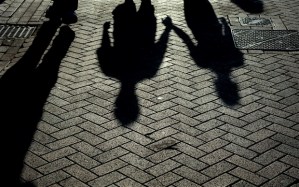There are incidents so overwhelming and horrific that it is nearly impossible to step outside of them and develop any understanding of what occurred. But it is imperative we do just that. When natural disaster strikes we scramble to rescue and recover and then must assess our preparedness and responsiveness. It’s how we gain control over our environment and perhaps mitigate the impact of future disasters. It is tempting, after the trauma of rescue and recovery to turn away and step into the sun, step into the light. But we are more than our emotions we are also our intellect.
As we watch the horrific facts pour forward in the Penn State University case, we must keep this analysis at the forefront of our minds. It is challenging to pull ourselves out of the realization that corruption is far more insidious than we ever imagined. The news that systemic self-interest took precedence over protecting children is mind-boggling. But it happened and we should assume it always has and probably is happening right at this very moment in any place. The fact that a handful of people have been identified as actively covering up a heinous crime and allowing the rapist to carry on, does not mean there were/are not more people engaged in similar cover-ups. (Lying to a grand jury probably happens periodically as well, but lying to protect a child predator is worth noting.)
There are few things we agree upon as a nation; and one of them is exaltation of childhood. For a century or so we’ve come to view childhood as a special time. We consider children innocent, impressionable and in need of our protection. We’ve created an entire consumer market devoted to protecting children from the hazards of the world. We agree, on a social, psychological and capital level, that children need protecting. Yet what we are learning is that people chose to not protect children in serious danger because of self-interest (i.e., fear of job loss, reputation of department or institution, reputation of self or family.)
Nothing is entirely black or white of course. None of these people were lurking in the shadows twisting their mustache in evil glee. These are just people, probably people who have some good qualities. No doubt they created compelling narratives to assuage their guilt or quiet the voices in their heads. The eyewitness janitor might have convinced himself that what he saw was disturbing but not illegal (perhaps the child looked old enough to give consent.) Perhaps he was so shocked he considered what he had seen to be a homosexual act (versus child rape.) But yet he told two people. He (almost) did the right thing (doing the right thing is calling 9-1-1 while dragging the rapist off of the child.) The people he told no doubt wondered what their responsibility was in having second-hand information. Most of us know what a maelstrom a bureaucracy “in action” can be. Were they hesitant to bring that particular storm upon their heads? Making very poor choices doesn’t make one evil, it just reinforces the shades of grey that is life.
And what of the children? If we believe that they need protection at all costs does that not color in any shade of grey? There are professions that are legally mandated to report child endangerment (i.e., teachers, doctors, therapists, etc.) Loosely interpreted, any employee at an institution of learning with students under the age of consent might qualify as a mandated reporter. But what if we broadened the scope a bit? What if we created a campaign to deputize all adults to be mandated reporters? What if “see something, say something” came to mean more than abandoned mysterious packages? Are we worried that there will be a flood of unsubstantiated calls?
What little I know of human behavior (and the results of the “see something say something” campaign) leads me to believe that won’t be the case. What will happen though will be an awareness and a change in our orientation toward child sexual abuse. We will gradually rid ourselves of our mental prototype of a molester or victim. We will begin to view all people, regardless of gender, age, orientation, profession or religion as being a complex human being capable of anything. And we will come to terms with the lessons learned long ago; silence equals complicity.
